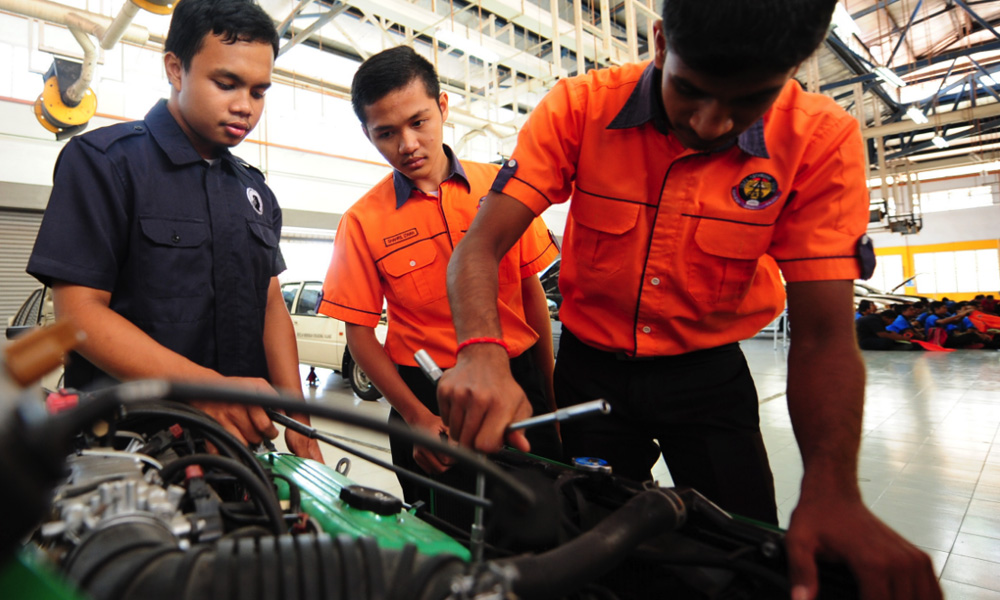COMMENT | When talking about allocation of resources for society, a fair distribution should not be forgotten. This gives a point to the government in helping those in need namely the lower-income household group, the B40 category, particularly in terms of their empowerment.
Nevertheless, several factors taken lightly would lead to inefficient distribution and it can cause a waste of local talents who are our future human capital.
For instance, some resources allocated by the federal government for this group are not utilised well. One obvious example which caught attention can be taken from the third series of the Auditor-General’s Report 2018 published last month.
To be more specific, the findings have shown that a special programme targeting the B40 group known as the Capacity and Capability Building Programme of Special Group (PPKK) was not managed well by the participating agencies.
What is PPKK meant for? The programme is to provide short-term and long-term training for the B40 to be able to search for jobs, improve income and reduce poverty. It was initiated during the 10th Malaysia Plan and was continued during the 11th Malaysia Plan.
For this programme, the Economic Planning Unit (EPU) is the main coordinator joined by other coordinating agencies such as the Skills Development Fund Corporation, Unit Peneraju Agenda Bumiputra, the Youth and Sports Ministry as well as the implementing agencies. Each agency has its own programme with different amount of allocations provided by the EPU.
Between 2016 and 2018, the government had allocated a total of RM258.3 million for the programme to be executed by these agencies.
However, there were several unsatisfactory findings by appointed auditors relating to the programme. Only 54.4 percent of the total allocation was spent on the back of weak financial management.
Out of the 22 training programmes that had been planned, only 11 were carried out in line with PPKK’s objectives with an allocation of RM97.3 million. As a result, the participation rate for the training programmes was low at 38.5 percent of the 100,000 participants target.

Slow approvals and distribution of funds by the coordinating agencies were also contributing factors which led to the delay in the programme commencement and affected its effectiveness.
Even within the programmes that were executed, the incomplete provision of documents by some of the agencies did not help to track whether the programmes were actually effective for the group or otherwise.
Another flaw detected in the programme implementation is that the tracer study lacks presence. The tracer study consists of data collection of the participants which involves their current job status as well as their salaries.
Based on the auditors’ findings, only 16 out of 28 service providers appointed by the implementing agencies (57.1 percent) provided tracer study reports.
Based on the tracer study reports, only 1,076 out of 7,188 participants (15 percent) managed to secure jobs. This data, however, could not be confirmed due to incomplete documents provided to the auditors.
Finally, the absence of effective monitoring led to the mismanagement of allocation affecting the objectives of the programme.
This is only one example of many initiatives meant to empower the rakyat in the B40 category which was not properly managed and it is such disappointing news to be discovered.
So, what are the alternatives that can be looked into in trying to support the empowerment of the group?
Firstly, due to the unprecedented economic crisis brought about by Covid-19, the government has so far announced economic stimulus packages worth RM295 billion altogether.
Of the total, it is undeniable that there are plenty of stimulus measures addressing this vulnerable group as most of them are likely to be affected financially and there are plenty of people in need of help in getting employed.
Measures include the Bantuan Prihatin Nasional payouts, Wage Subsidy Programme, electricity tariff rebates, hiring and training incentives, reskilling and upskilling programmes, My30 public transport subsidy, and e-Penjana credits.
Referring back to the previously mentioned programme under the EPU dedicated for the B40, hopefully, the hiring and training incentives, reskilling and upskilling programmes under the Penjana package would take off well and be effective for the targeted group with constant monitoring.
Secondly, this is just the right time to be more proactive in promoting and building up the Technical and Vocational Education and Training (TVET) amongst the B40 group.

TVET is a platform whereby formal, non-formal and informal learning are provided to prepare skilled youth in the working field. As mentioned in my previous article focusing on youth unemployment, past studies have shown that effective vocational training can help lower youth unemployment rate.
Not to forget, the TVET initiative should not only target the majority in Malaysia but also minorities such as the Orang Asli. As stated by Human Resources Minister M Saravanan recently, the ministry is targeting the participation of 2,000 Orang Asli youths in the Go TVET programme by next year.
He added currently, 46 Orang Asli youths are pursuing various courses at the Industrial Training Institute in Ipoh between 24 and 27 months. It is quite a long way to go to reach the target so hopefully, the effort to invite more participants is continuous.
At the end of the day, there will be never-ending numbers of initiatives which we can suggest to empower the B40 group but everything goes back to how they are executed, in a most effective way. So, that remains the crux of the issue.
SOFEA AZAHAR is a research analyst at EMIR Research, a think tank focused on strategic policy recommendations.
The views expressed here are those of the author/contributor and do not necessarily represent the views of Malaysiakini.

